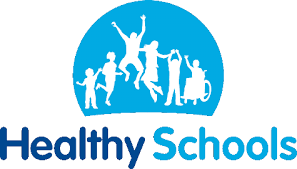The safety and well-being of the children at Darwen St James’ is of utmost importance. Our Safeguarding Lead in school is Miss Peckson and the Deputy Safeguarding Leads are Miss Evans and Miss Mulcock. These staff members have undertaken Designated Safeguarding Lead Training. Our Safeguarding Governor is Mrs Maynard.
All other members of school staff are regularly trained and updated in safeguarding and child protection. All disclosures from children or concerns from adults are taken seriously, recorded and investigated thoroughly. We work with all relevant agencies to reduce risk and promote the welfare of children.
What is safeguarding?
Safeguarding is the action taken to keep children safe from abuse and neglect.
It is EVERYONE’S RESPONSIBILITY
As outlined in Keeping Children Safe in Education 2023 it is clearly defined as:
-
protecting children from maltreatment;
-
preventing impairment of children’s mental and physical health or development;
-
ensuring that children grow up in circumstances consistent with the provision of safe and effective care; and
-
taking action to enable all children to have the best outcomes.
What is neglect?
Neglect is the ongoing failure to meet a child or young person's basic needs
This includes:
-
Food, clothing and shelter
-
A safe place to live
-
Love, care or attention
-
Education, health and dental care
Neglect is the most common form of child abuse. It is dangerous and can cause serious, long-term damage to children and young people.
What is child protection?
Child protection is a part of safeguarding and promoting welfare. This refers to the activity which is undertaken to protect specific children who are suffering, or at risk of suffering, significant harm.
Safeguarding
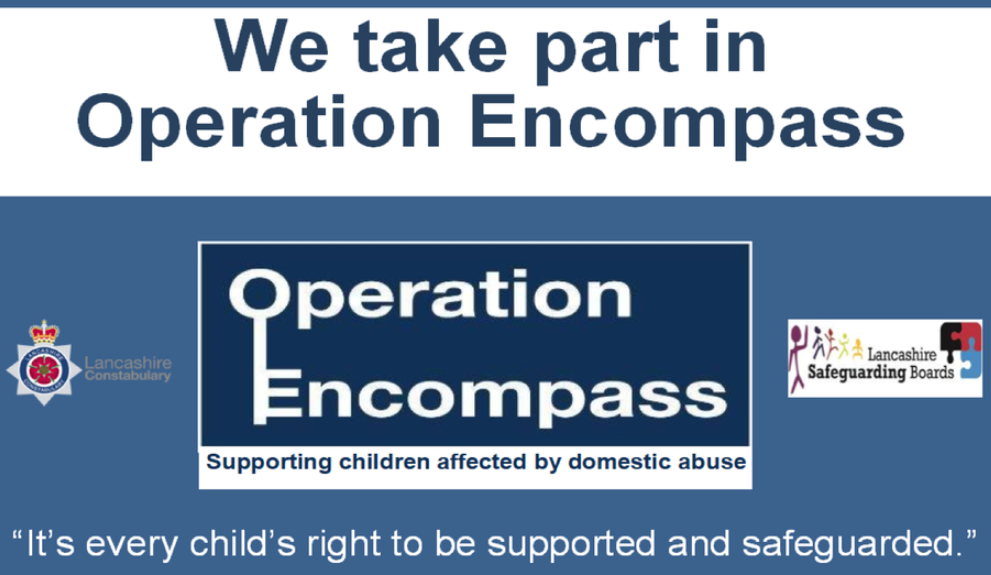
What is Operation Encompass?
Operation Encompass runs jointly between school and Lancashire Police. It has been created to address the need to report Domestic Abuse incidents experienced by pupils to their schools, in order to provide the support and nurture that they need when they need it most. By 9.00am on the next school day the school’s Key Adult will be informed that the child or young person has been involved, heard or witnessed a domestic incident. This knowledge, given to schools through Operation Encompass, will enable the provision of immediate early intervention through silent or overt support dependent upon the needs and wishes of the child.
At Darwen St James’ our Key Adult is Miss Evans.
For more information please contact Miss Peckson or go to: https://www.operationencompass.org/
Early help, also known as early intervention, is support given to a family when a problem first emerges. It can be provided at any stage in a child or young person's life.
Early help services can be delivered to parents, children or whole families, but their main focus is to improve outcomes for children. For example, services may help parents who are living in challenging circumstances provide a safe and loving environment for their child. Or, if a child is displaying risk-taking behaviour, early help practitioners might work with the child and their parents to find out the reasons for the child's behaviour and put strategies in place to help keep them safe.
Providing timely support is vital. Addressing a child or family's needs early on can reduce risk factors and increase protective factors in a child's life.
Protective factors can reduce risk to a child's wellbeing. They include:
-
developing strong social and emotional skills
-
having a strong social support network for the family – including support
-
for good parental mental health
-
income support, benefits and advice
-
good community services and facilities
Early help can offer children the support needed to reach their full potential (EIF, 2021). It can improve the quality of a child’s home and family life, enable them to perform better at school and support their mental health (EIF, 2021).
Research suggests that early help can:
-
protect children from harm
-
reduce the need for a referral to child protection services
-
improve children's long-term outcomes
Click the image below to visit the BwD Local Offer.
What is a Child and Family (CAF) Assessment?
The CAF Assessment is a way of working with children and young people. It involves listening to you and your child to find out your child’s needs, and what is working well in your child’s life. An action plan, agreed with you and your child, is also put in place to make sure your child gets the right sort of help.
How will CAF Assessment help my family?
The CAF Assessment exists to help you support your child. It can lead to a quick solution or help to identify extra support if needed. The CAF assessment will ensure that everyone involved with your child – such as teachers and health visitors – works together to support your child. The CAF Assessment will help your child receive the right support at an early stage before their needs increase which can be much more difficult to help you with.
When is The CAF Assessment used?
The CAF Assessment can be used if you or someone who works with your child would like your child to receive extra support. It will help to identify your child’s additional needs, and other workers required to support your family.
The Child & Family Assessment [CAF] is a four-step process whereby practitioners can;
•identify a child’s or young persons needs early
•assess those needs holistically
•deliver co-ordinated services
•review progress
The CAF is designed to be used when:a practitioner is worried about how well a child or young person is progressing, e.g. concerns about their health, development, welfare, behaviour, progress in learning or any other aspect of their wellbeing
-
a child or young person, or their parent/carer, raises a concern with a practitioner
-
a child's or young person's needs are unclear, or broader than the practitioner's service can address.
-
The process is entirely voluntary and informed consent is mandatory, so families do not have to engage - if they do, they can choose what information they want to share. Children and families should not feel stigmatised by the CAF; they can ask for a CAF to be initiated.
The CAF should be offered to children who have additional needs to those being met by universal services. Unless a child is presenting a need, it is unlikely the CAF will be offered. The practitioner assesses needs using the CAF. The CAF is not a risk assessment.
If a child or young person reveals they are at risk, the practitioner should follow the local safeguarding process immediately.
How does it work?
With agreement a professional will ask you and your child some questions to find out what help and support your child might need. This information is recorded on a CAF simple form. You and your child will agree what is put on the form, and you will be given a copy of it.
Older children may feel able to discuss their situation on their own with the worker. A young person’s wish to keep information confidential from parents may be respected by the worker, where this is in the young person’s best interests and welfare.
Confidentiality
As a rule the information which you and your child provide will only be shared with your family’s consent. However there may be certain times when the people working with you need to share information.
For example:
• When they need to find out urgently if a child is at risk of harm;
• To help a child who is at risk of harm;
• When an adult is at risk of harm; or
• To help prevent or detect a serious crime.
Who is a co-ordinator?
If an CAF Assessment is to be completed, you will choose who you would like to be the lead practitioner. This person will keep you informed, listen to your views and support you. The lead practitioner will also co-ordinate all the services supporting your child. At Darwen St James our lead practitioners tend to be our Pupil Wellbeing Coordinator.
Support and resources for children and parents
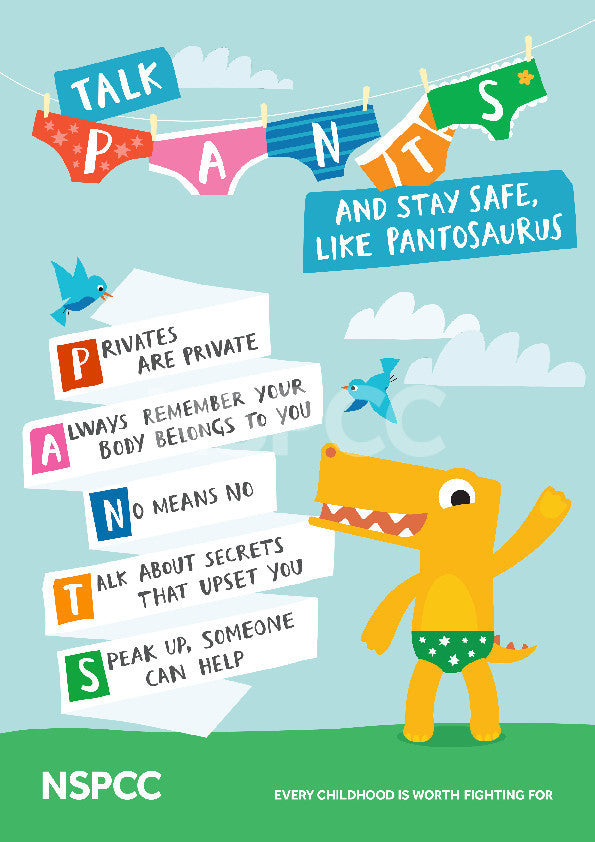
NSPCC - https://www.nspcc.org.uk/keeping-children-safe/support-for-parents/
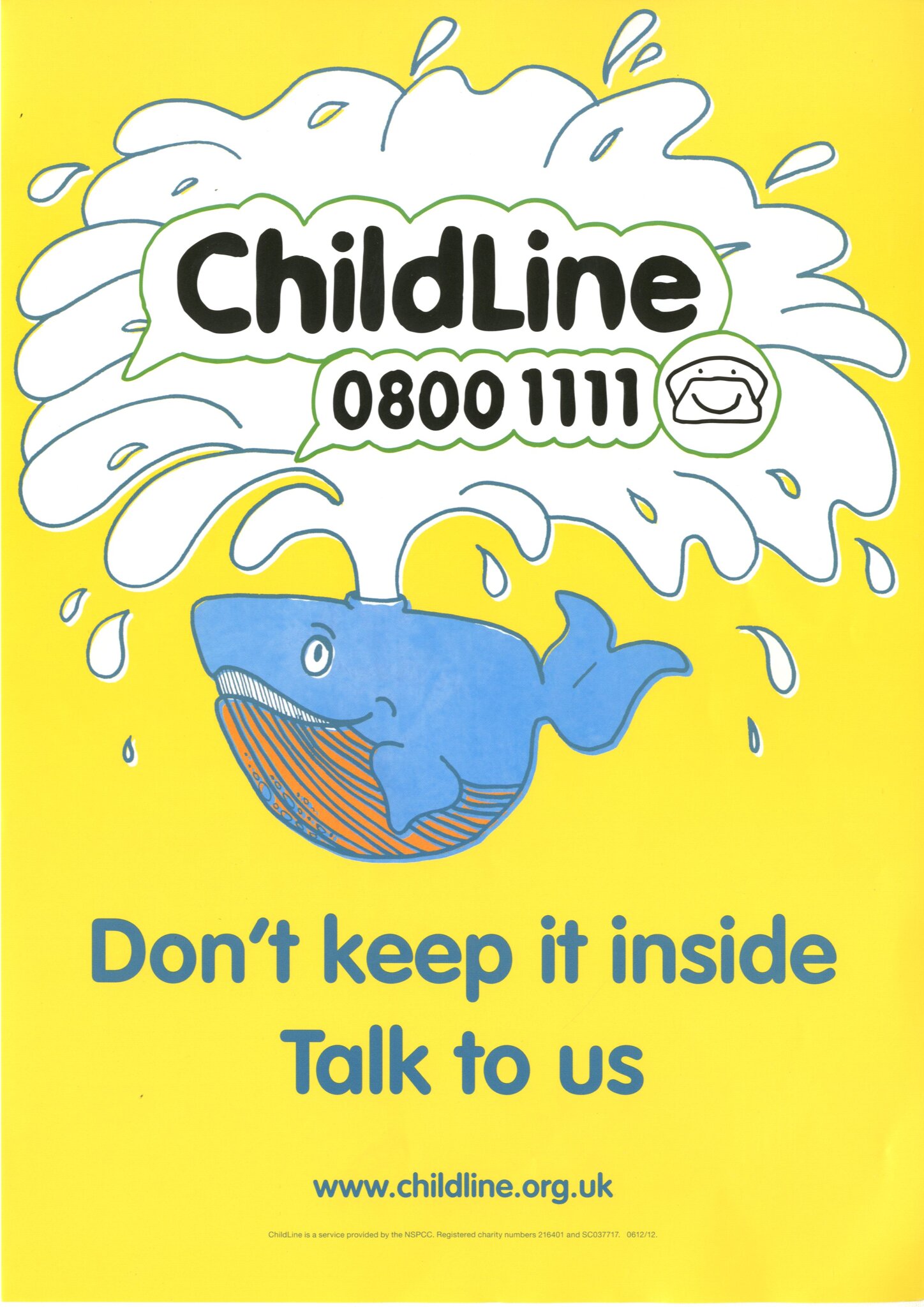
Childline- https://www.childline.org.uk/

Kooth- https://www.kooth.com/
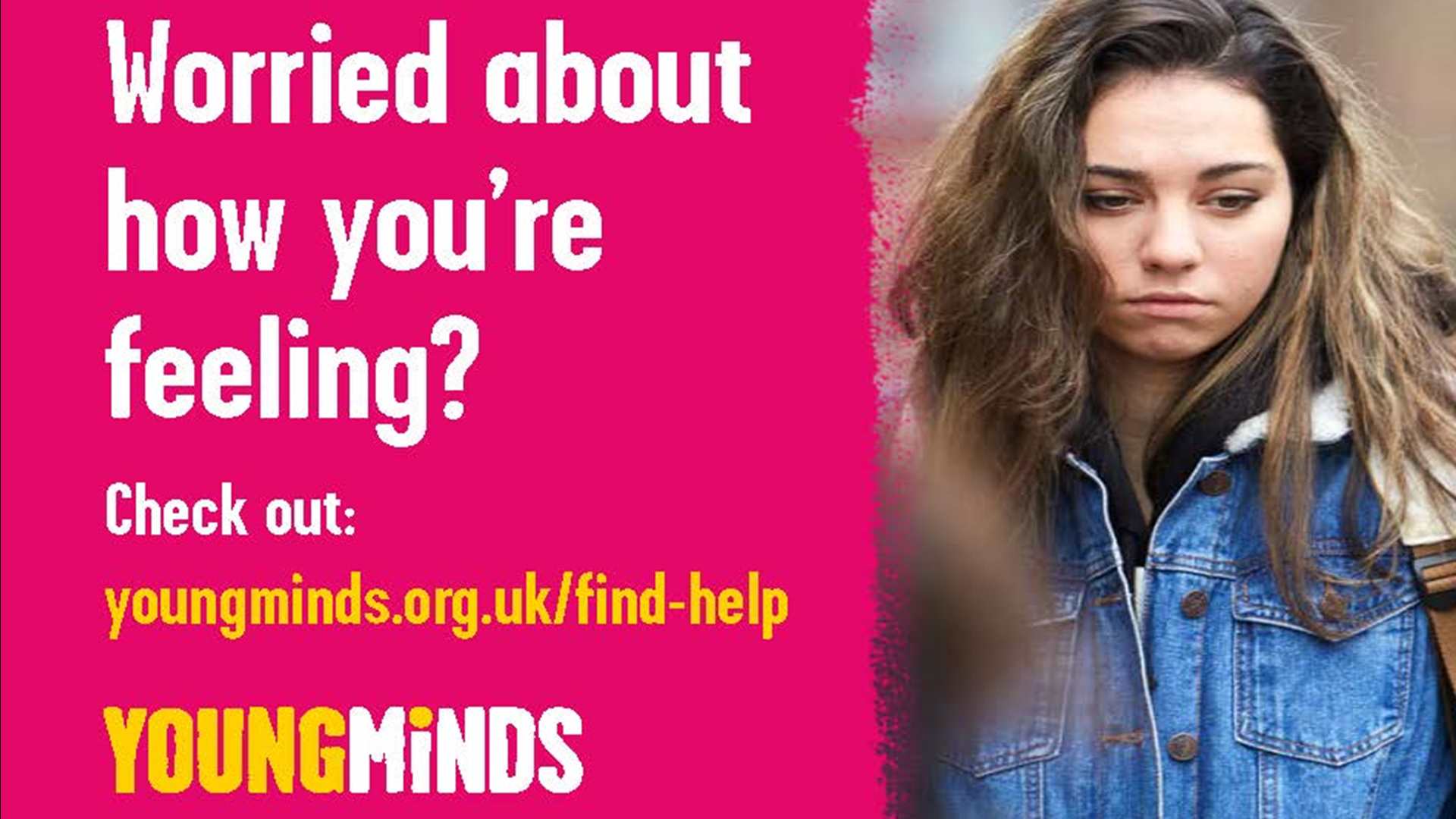
Young Minds- https://www.youngminds.org.uk/
Bee Yourself-
Bee Yourself is an online platform designed to promote mental health and wellbeing for young people living in Blackburn with Darwen. It offers a range of resources and activities to help young people feel good and have fun while providing information and support for parents, carers, and practitioners working with young people.
https://getstuckin.org.uk/bee-yourself/
Teen Mental Health- A guide for parents-
https://www.mytutor.co.uk/blog/parents/teen-mental-health-a-guide-for-parents/
Menstrual cycles and mental health- A guide for parents-
https://yoppie.com/menstrual-cycles-mental-health
The Lily-Jo Project- mental health support for children advice for parents
Drug and alcohol support- Rehab 4 addiction
https://www.rehab4addiction.co.uk/country-wide/drug-alcohol-rehab-lancashire
At Darwen St James we recognise that we must have “due regard to the need to prevent people from being drawn into terrorism”. This duty is known as the Prevent duty and enables us to protect children from the risk of radicalisation.
“In order for schools and childcare providers to fulfil the Prevent duty, it is essential that staff are able to identify children who may be vulnerable to radicalisation, and know what to do when they are identified. Protecting children from the risk of radicalisation should be seen as part of schools’ and childcare providers’ wider safeguarding duties, and is similar in nature to protecting children from other harms (e.g. drugs, gangs, neglect, sexual exploitation), whether these come from within their family or are the product of outside influences. Schools and childcare providers can also build pupils’ resilience to radicalisation by promoting fundamental British values and enabling them to challenge extremist views. It is important to emphasise that the Prevent duty is not intended to stop pupils debating controversial issues. On the contrary, schools should provide a safe space in which children, young people and staff can understand the risks associated with terrorism and develop the knowledge and skills to be able to challenge extremist arguments.
(Prevent Duty, June 2015)
As part of our wider safeguarding duties, at Darwen St Jame we recognise that it is essential that we are able to identify children who may be vulnerable to radicalisation, and know what to do when they are identified. All relevant staff undertake online CPD provided by the Home Office on identification of children vulnerable to radicalisation and the PREVENT strategy every year. Updates are provided through team meetings and briefings sharing relevant government updates and case studies.
Staff are aware of potential indicators that children are vulnerable to radicalisation regardless of age, gender, ethnicity etc. As a result, they are alert to changes in children’s behaviour which could indicate that they may be in need of help or protection. Children at risk of radicalisation may display different signs or seek to hide their views. School staff use their professional judgement in identifying children who might be at risk of radicalisation and act proportionately. School staff report any concerns and, through discussion with the safeguarding team, understand when it is appropriate to make a referral to the Channel programme.
Channel is a multi-agency safeguarding programme run in every local authority in England and Wales.
It works to support vulnerable people from being drawn into terrorism and provides a range of support such as mentoring, counselling, assistance with employment etc. Channel is about early intervention to protect vulnerable people from being drawn into committing terrorist-related activity and addresses all types of extremism.
Participation in Channel is voluntary. It is up to an individual, or their parents for children aged 17 and under, to decide whether to take up the support it offers. Channel does not lead to a criminal record.
If you have any concerns about someone and would like more advice ring:
-
Local Authority Prevent team: 01254 585 260 / email [email protected]
-
Police Prevent Team: 01772 413398
-
If you think a threat is imminent call the police on 999
-
Alternatively contact the police confidentially on the Anti-terrorist hotline 0800 789 321.
-
Report your concerns to [email protected].

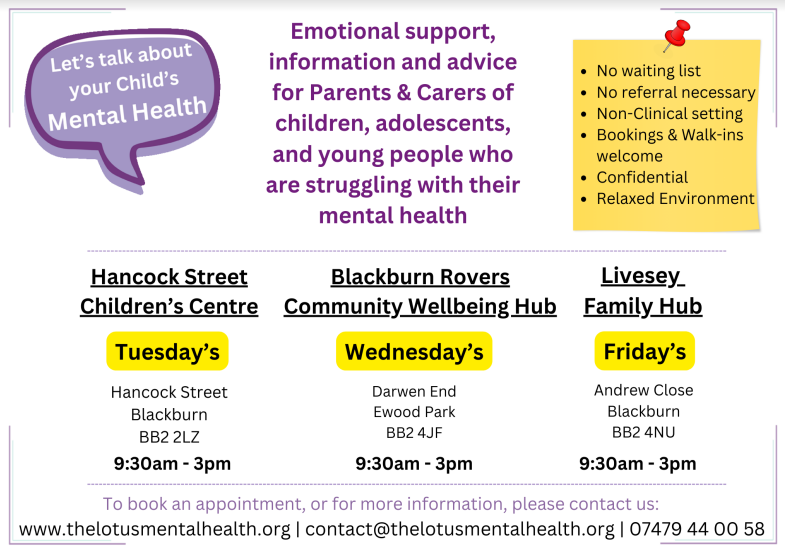

.png)
